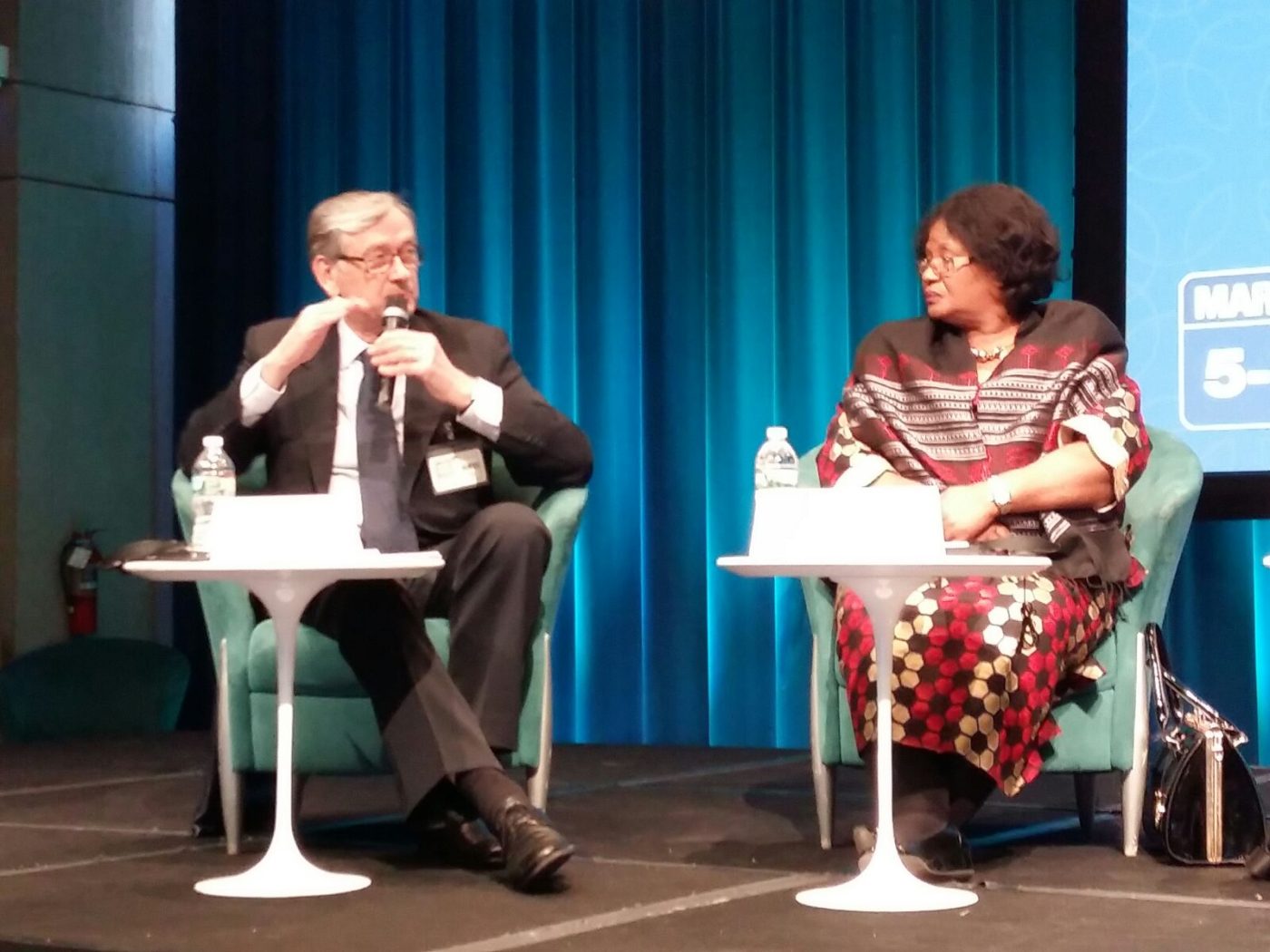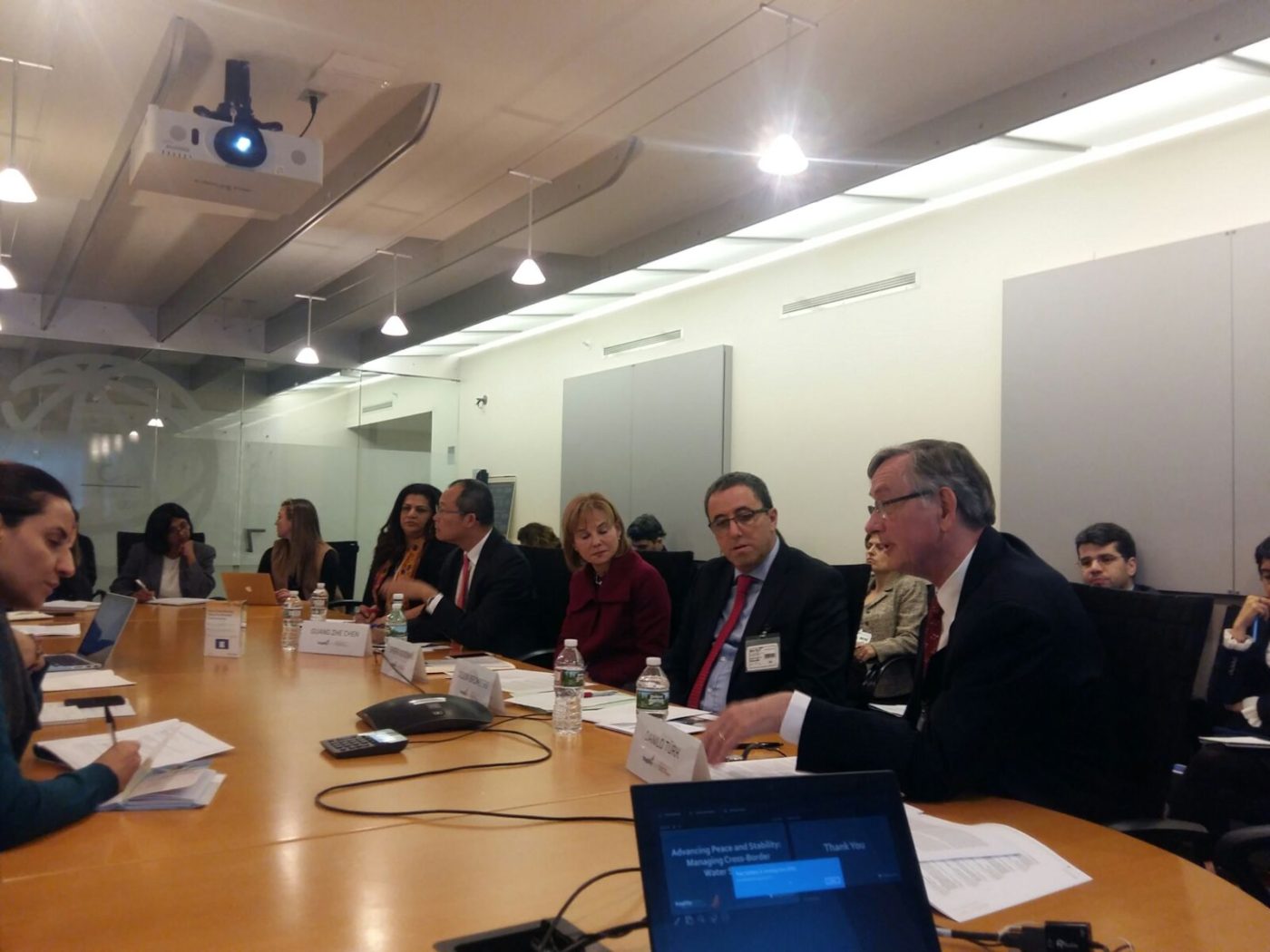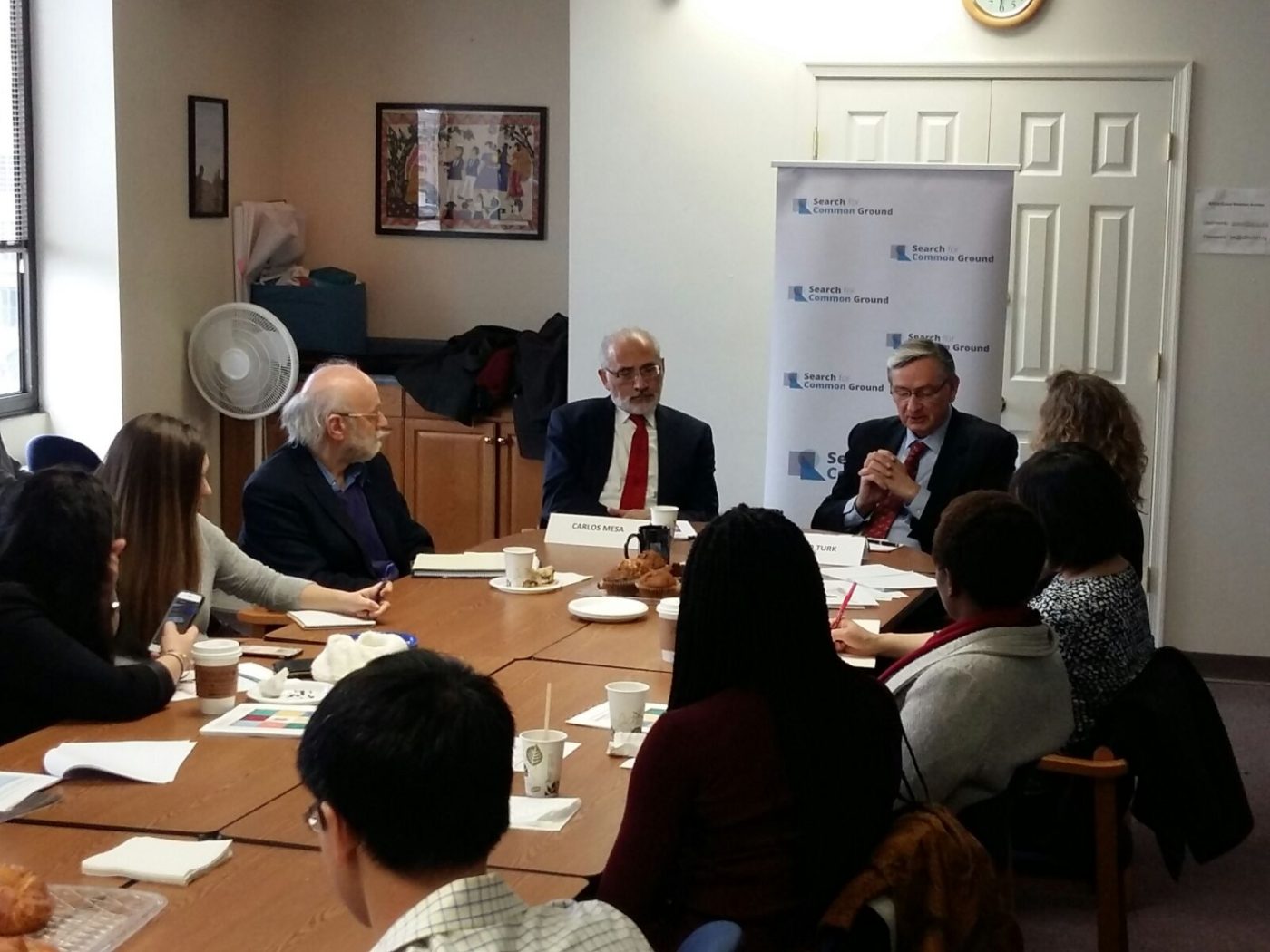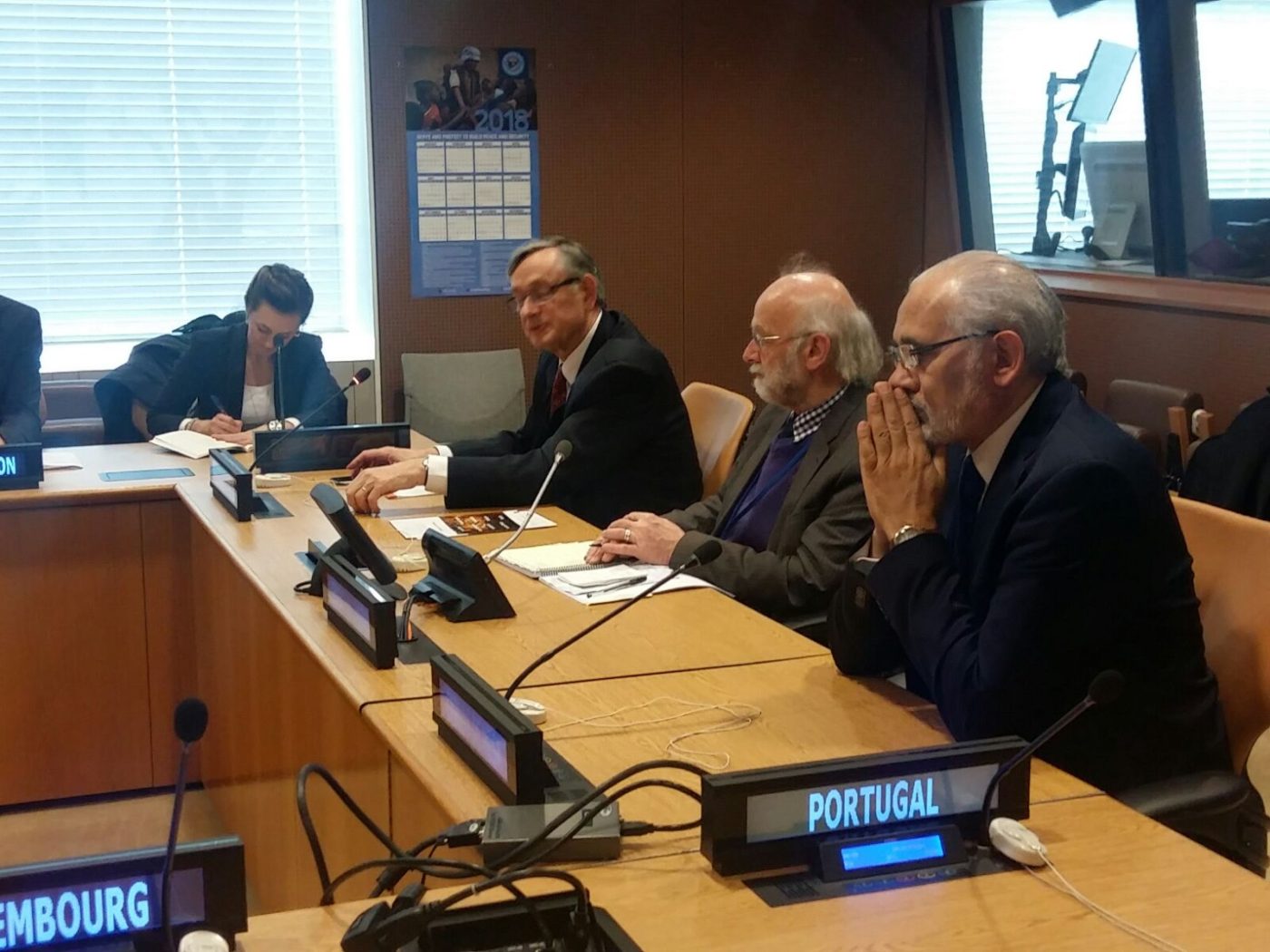Club de Madrid (CdM) Members led the Shared Societies Project mission: “Engaging with World Bank and United Nations on key issues from an inclusion perspective” to Washington and New York from 5th to 8th of March. The mission was led by former President of Malawi, Joyce Banda, former President of Bolivia, Carlos Mesa, and former President of Slovenia, Danilo Türk.
This mission has been arranged to engage with processes being undertaken by the Global Community. On the one hand, the Fragility Forum, a gathering organized by the World Bank from 5th to 7th March, which considers how to support fragile states. On the other hand, the World Bank/United Nations study group released a report called Pathways to Peace: Inclusive Approaches to Preventing Violent Conflict, which considers conflict not just in security terms, but also in terms of development and peacebuilding. Lastly, our members held discussions at the United Nations on the Global Compact on Safe Orderly and Regular Migration, which is being negotiated by the international community.

During the Fragility Forum Inauguration session, CdM in collaboration with Brookings Institution and Institute for State Effectiveness co-organized the Panel: “Overcoming Fragility: The Development Challenge of our time”. President Joyce Banda mentioned the impacts that leaders can have in preventing conflicts: “First, they need to be inclusive and engage with others. Then, they can promote small projects that can truly change the lives of ordinary people”. She also stressed the importance of including people with firsthand knowledge of issues in decision making, noting that working with grassroots organizations is key to promoting inclusiveness and democracy.
President Danilo Turk stressed the importance of having inclusive societies to tackle fragility, recalling the situation in the Balkan Region, which continues today. He also noted that “emerging countries such as China and India have a role to play in addressing fragility”.
President Turk also participated in the panel “Advancing Peace and Stability: Managing Water Security”, where participants discussed how water and similar resources can remain an element for development and not for confrontation. The former President of Slovenia described the lack of cooperation in water security, advocating the need of “strengthening legal international cooperation on water management”, as well as the need to expand regional and bilateral cooperation on water resources.

A Global Compact on Migration with an inclusive approach
The following day, CdM Members Carlos Mesa and Danilo Turk participated in a public event hosted by Search for Common Ground, “Human Rights and Environmental Protection”. Participants discussed rights-based strategies for environmental protection. President Mesa, emphasized the importance of combining indigenous rights and sustainable development, referencing his home country, where “half of the population is indigenous and their idea of human rights is linked to community ties rather than individuals”. Mesa elaborated that especially in the least developed countries, “it is key to understand that there is a lack of coherence between the ideas of exploitation and speculation, and the concept of sustainable development.”

At the United Nations Headquarters in New York City, CdM Members, along with the Permanent Mission of Spain to the UN, hosted the event “An Inclusive Approach to Migration Management: The Way Forward to the Global Compact”. Members discussed how to contribute to the negotiations of a Global Compact for Migration with an inclusive approach. President Turk mentioned that simply accepting migrants is just the first step, and that “States might be able to develop more mature policies on migration as a way to strengthen migration rights”. Representatives from Spain, Tuvalu, France, Italy, Myanmar and the European Union, among others, contributed to the discussion highlighting the links between the Global Compact and the Agenda 2030, the lack of resources for the settlement of migrants and the impact of globalization on our understanding of migration.
Also in New York, Members Danilo Turk and Carlos Mesa participated at a roundtable to discuss the World Bank/United Nations Pathways for Peace: Inclusive Approaches to Preventing Violent Conflict. At this event, organized in collaboration with The Quakers United Nations Office, experts Corey Pattison, Specialist on Fragility, Conflict and Violence Group from the World Bank; Jago Salmon, Advisor to the UN/World Bank Partnership in Fragile and Conflict Affected States and Barrie Freeman, Deputy and Political Director, UN Peace Building Support Office, alongside CdM Members, offered their reflections on the main conclusions of the document focusing on the importance to avoid risk of violence conflict.

Additional bilateral meetings were organized with representatives from World Bank, Brookings Institute, Institute for State Effectiveness, UNDESA, Friedrich Ebert Stiftung New York in order to update on the work of CdM and discuss further collaboration.